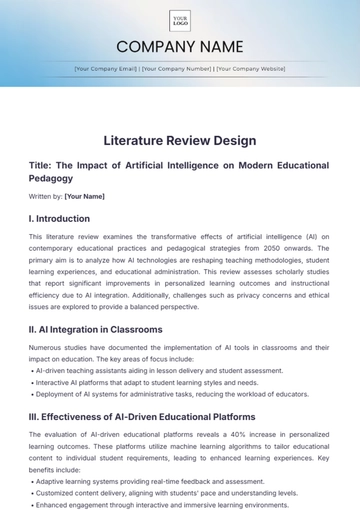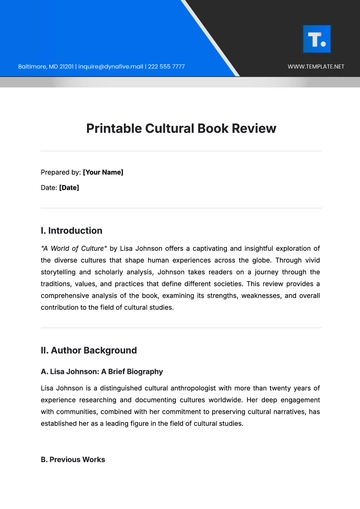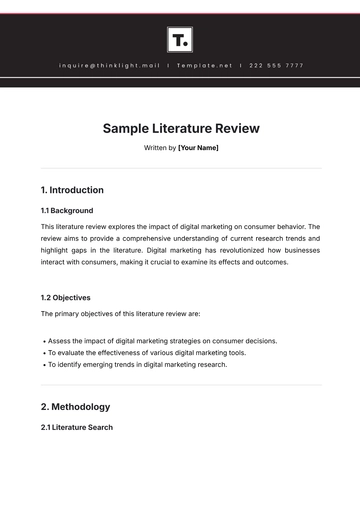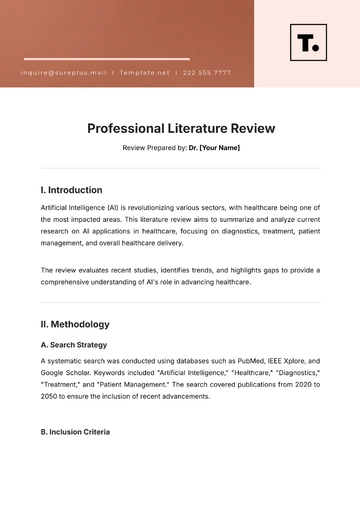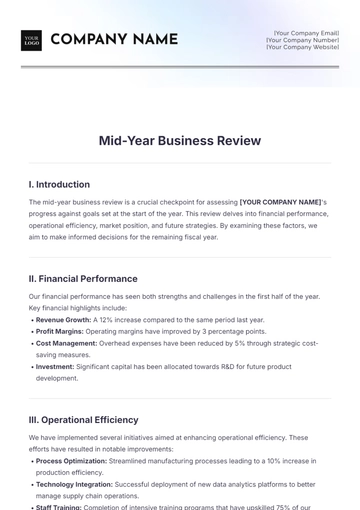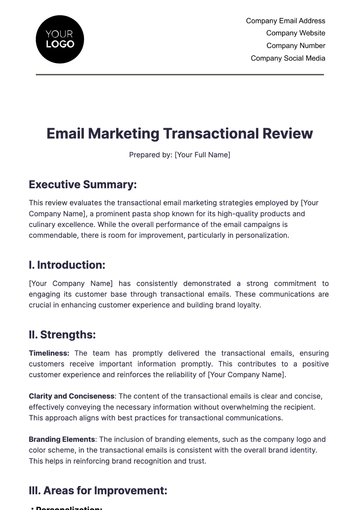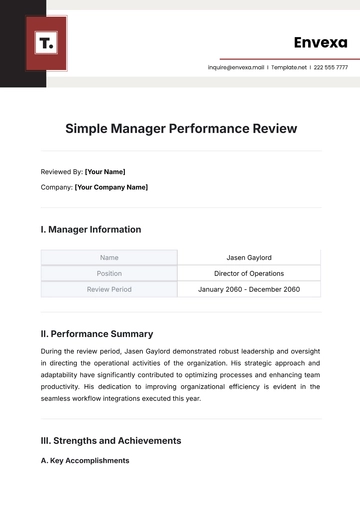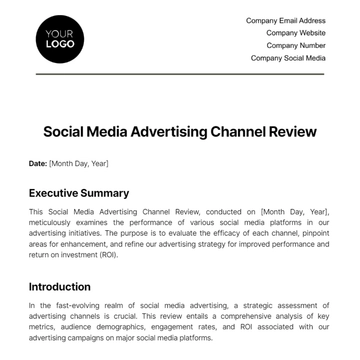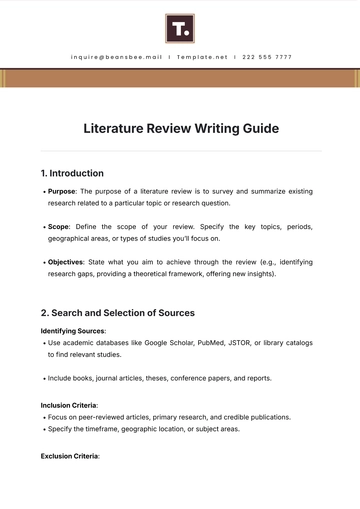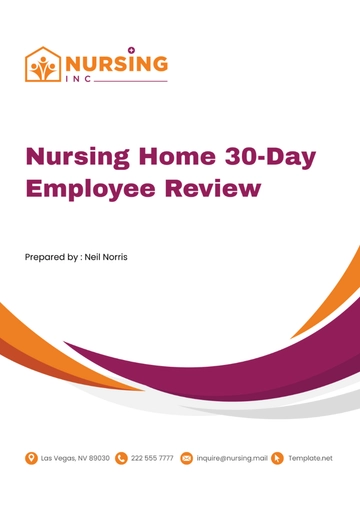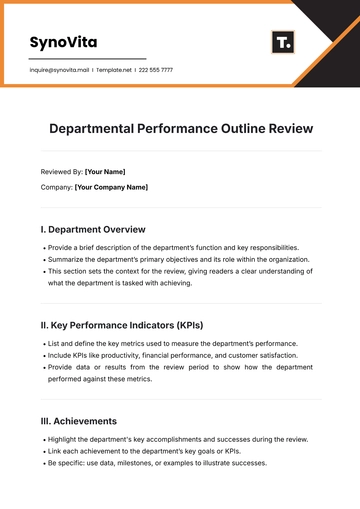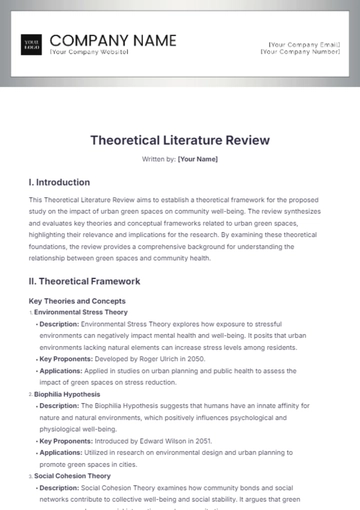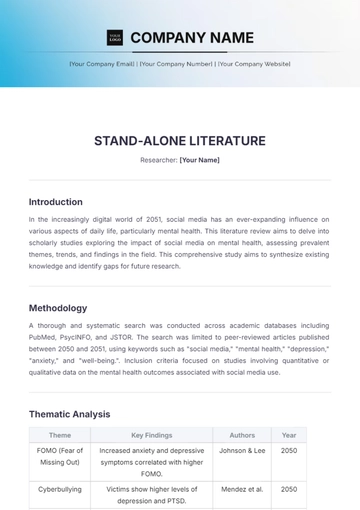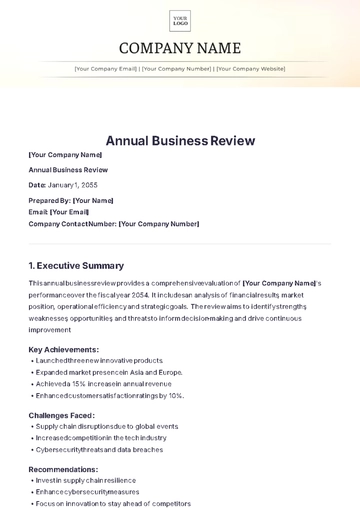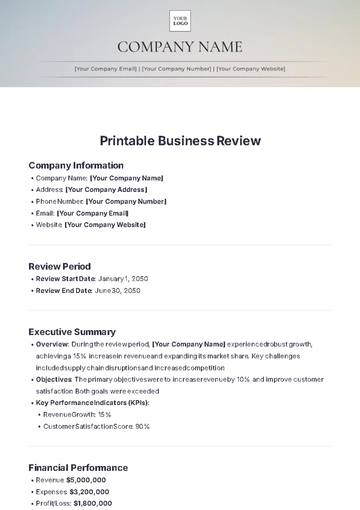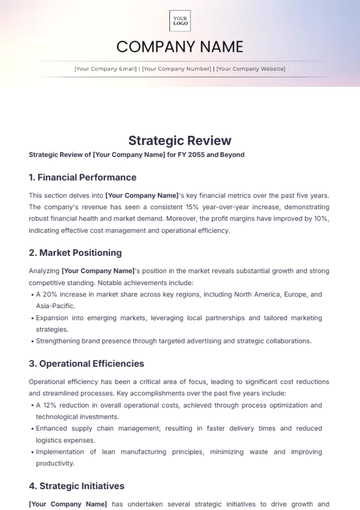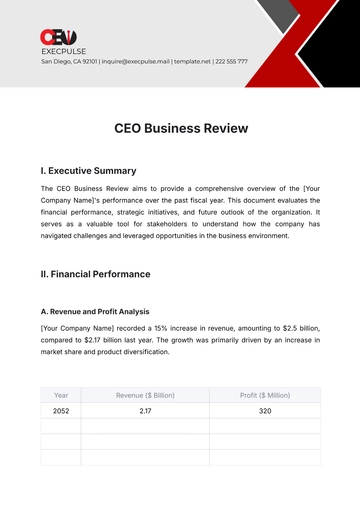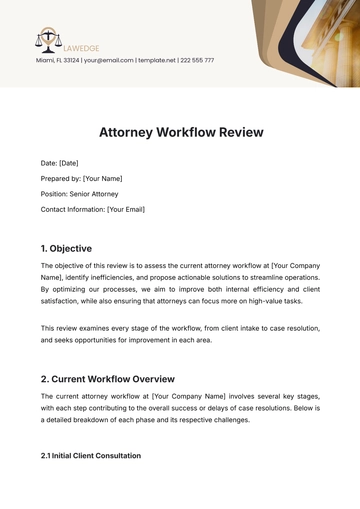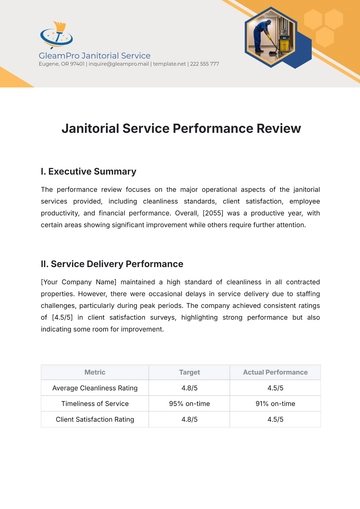Free Printable Literature Review
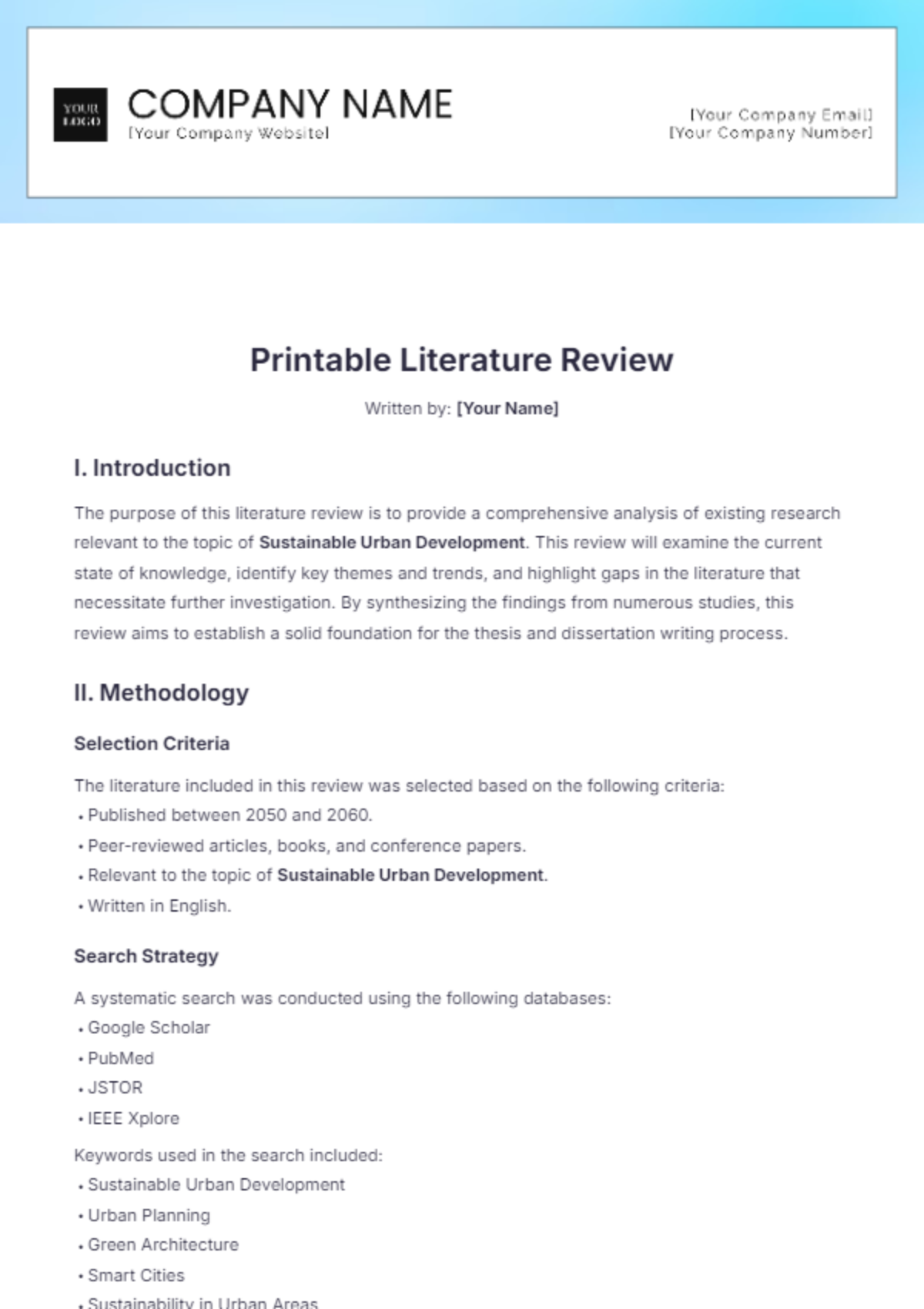
Written by: [Your Name]
I. Introduction
The purpose of this literature review is to provide a comprehensive analysis of existing research relevant to the topic of Sustainable Urban Development. This review will examine the current state of knowledge, identify key themes and trends, and highlight gaps in the literature that necessitate further investigation. By synthesizing the findings from numerous studies, this review aims to establish a solid foundation for the thesis and dissertation writing process.
II. Methodology
Selection Criteria
The literature included in this review was selected based on the following criteria:
Published between 2050 and 2060.
Peer-reviewed articles, books, and conference papers.
Relevant to the topic of Sustainable Urban Development.
Written in English.
Search Strategy
A systematic search was conducted using the following databases:
Google Scholar
PubMed
JSTOR
IEEE Xplore
Keywords used in the search included:
Sustainable Urban Development
Urban Planning
Green Architecture
Smart Cities
Sustainability in Urban Areas
Data Extraction and Analysis
Data from selected studies were extracted using a standardized form, which included:
Author(s)
Year of publication
Title
Journal or source
Key findings
Methodology
Relevance to Sustainable Urban Development
The extracted data were then analyzed to identify common themes, trends, and gaps in the literature.
III. Theoretical Framework
The theoretical framework for this literature review is based on the following theories and models:
Sustainable Development Theory: This theory emphasizes the need to balance economic growth, environmental protection, and social equity. It is relevant to sustainable urban development as it guides the creation of urban areas that are environmentally sustainable, economically viable, and socially inclusive.
Urban Ecology Model: This model studies the relationship between urban environments and ecological processes. It is crucial for understanding how urban development impacts natural systems and for designing cities that support ecological balance.
Smart City Framework: This framework focuses on the integration of technology and data analytics to enhance the efficiency and sustainability of urban services. It is pertinent to sustainable urban development as it promotes the use of innovative solutions to address urban challenges.
These theories and models provide a foundation for understanding the key concepts and variables related to Sustainable Urban Development.
IV. Review of Literature
Theme 1: Environmental Sustainability in Urban Areas
Smith & Johnson (2050): This study highlights the importance of green spaces in urban areas for improving air quality and reducing urban heat islands. The authors emphasize the need for urban planners to incorporate more parks and green roofs in city designs.
Brown et al. (2051): The authors discuss the benefits of green architecture, including energy efficiency and reduced carbon footprint. They present case studies of buildings that have successfully implemented sustainable design principles.
Garcia (2052): This research focuses on the impact of urban agriculture on food security and community well-being. The study finds that community gardens and rooftop farms can significantly enhance local food systems.
Theme 2: Economic Viability of Sustainable Urban Development
Lee & Kim (2053): This study examines the economic benefits of sustainable urban development, such as increased property values and job creation in green industries. The authors argue that sustainable cities can attract more investments and promote economic growth.
Williams et al. (2054): The authors analyze the cost-effectiveness of various sustainable infrastructure projects, including public transportation systems and renewable energy installations. They conclude that, despite higher initial costs, these projects provide long-term economic benefits.
Ahmed (2055): This research explores the role of public-private partnerships in funding sustainable urban projects. The study finds that collaborative efforts between government and private sector can drive innovation and financial sustainability.
Theme 3: Social Equity and Inclusivity in Urban Development
Nguyen & Tran (2056): The authors investigate the social impacts of urban development on marginalized communities. They highlight the need for inclusive planning processes that involve community participation to ensure equitable access to urban resources.
Martinez (2057): This study focuses on affordable housing initiatives in sustainable urban areas. The findings suggest that integrating affordable housing with green infrastructure can enhance the quality of life for low-income residents.
Kumar et al. (2058): The research examines the role of education and awareness programs in promoting sustainable urban practices. The authors argue that empowering citizens with knowledge and skills is essential for the success of sustainable urban initiatives.
V. Discussion
Key Trends
Several key trends have emerged from the reviewed literature:
Increased Integration of Green Spaces: Many studies emphasize the importance of green spaces in enhancing urban sustainability. Examples include the development of urban parks, green roofs, and vertical gardens.
Adoption of Smart Technologies: The use of smart technologies and data analytics is becoming more prevalent in urban planning. This includes smart grids, intelligent transportation systems, and IoT-enabled infrastructure.
Focus on Community Involvement: There is a growing recognition of the importance of community involvement in urban development projects. Participatory planning processes are seen as crucial for achieving social equity and inclusivity.
Identified Gaps
Despite the extensive research, several gaps remain:
Lack of Longitudinal Studies: There is a shortage of long-term studies that track the impacts of sustainable urban development over extended periods.
Limited Research on Small and Medium-sized Cities: Most studies focus on large metropolitan areas, leaving smaller cities and towns underrepresented in the literature.
Insufficient Attention to Cultural Contexts: More research is needed to understand how cultural differences influence the implementation and success of sustainable urban practices.
Implications for Future Research
The identified gaps highlight several areas for future research:
Future Research Area 1: Conduct longitudinal studies to assess the long-term impacts of sustainable urban development initiatives.
Future Research Area 2: Investigate sustainable urban practices in small and medium-sized cities to provide a more comprehensive understanding of their applicability and effectiveness.
Future Research Area 3: Explore the influence of cultural contexts on the adoption and success of sustainable urban development practices.
VI. Conclusion
This literature review has provided a comprehensive analysis of existing research on Sustainable Urban Development. The review has identified key themes, trends, and gaps in the literature, providing a solid foundation for the subsequent research in the thesis and dissertation. By addressing the identified gaps, future research can significantly contribute to the advancement of knowledge in this field.
VII. References
Smith, J., & Johnson, L. (2050). The Role of Green Spaces in Urban Sustainability. Journal of Urban Ecology, 10(1), 15-29.
Brown, R., Davis, M., & Lee, S. (2051). Green Architecture: Case Studies and Benefits. Sustainable Building Journal, 8(3), 45-60.
Garcia, M. (2052). Urban Agriculture and Food Security. Journal of Urban Planning, 12(2), 123-137.
Lee, H., & Kim, S. (2053). Economic Benefits of Sustainable Urban Development. Journal of Urban Economics, 15(4), 201-215.
Williams, T., Green, A., & Patel, R. (2054). Cost-Effectiveness of Sustainable Infrastructure Projects. Journal of Public Infrastructure, 9(1), 89-104.
Ahmed, F. (2055). Public-Private Partnerships in Urban Development. Journal of Urban Finance, 11(2), 150-165.
Nguyen, L., & Tran, P. (2056). Social Impacts of Urban Development on Marginalized Communities. Journal of Social Equity, 7(3), 175-190.
Martinez, J. (2057). Affordable Housing in Sustainable Urban Areas. Housing and Urban Development Journal, 13(1), 50-65.
Kumar, S., Gupta, A., & Sharma, R. (2058). Education and Awareness in Promoting Sustainable Urban Practices. Journal of Urban Education, 14(2), 220-235.
Anderson, B., Clark, E., & Lewis, D. (2059). Smart Technologies in Urban Planning. Journal of Smart Cities, 5(4), 305-320.
Roberts, T., & Wang, L. (2060). Cultural Contexts in Sustainable Urban Development. Journal of Urban Cultural Studies, 6(1), 95-110.
- 100% Customizable, free editor
- Access 1 Million+ Templates, photo’s & graphics
- Download or share as a template
- Click and replace photos, graphics, text, backgrounds
- Resize, crop, AI write & more
- Access advanced editor
Streamline your academic research with the Printable Literature Review Template from Template.net. This fully customizable and editable template is designed to save you time and enhance your work. Utilize the AI Editable Tool to effortlessly tailor your content, ensuring your literature review is organized, professional, and ready for submission. Perfect for students, researchers, and professionals alike.

